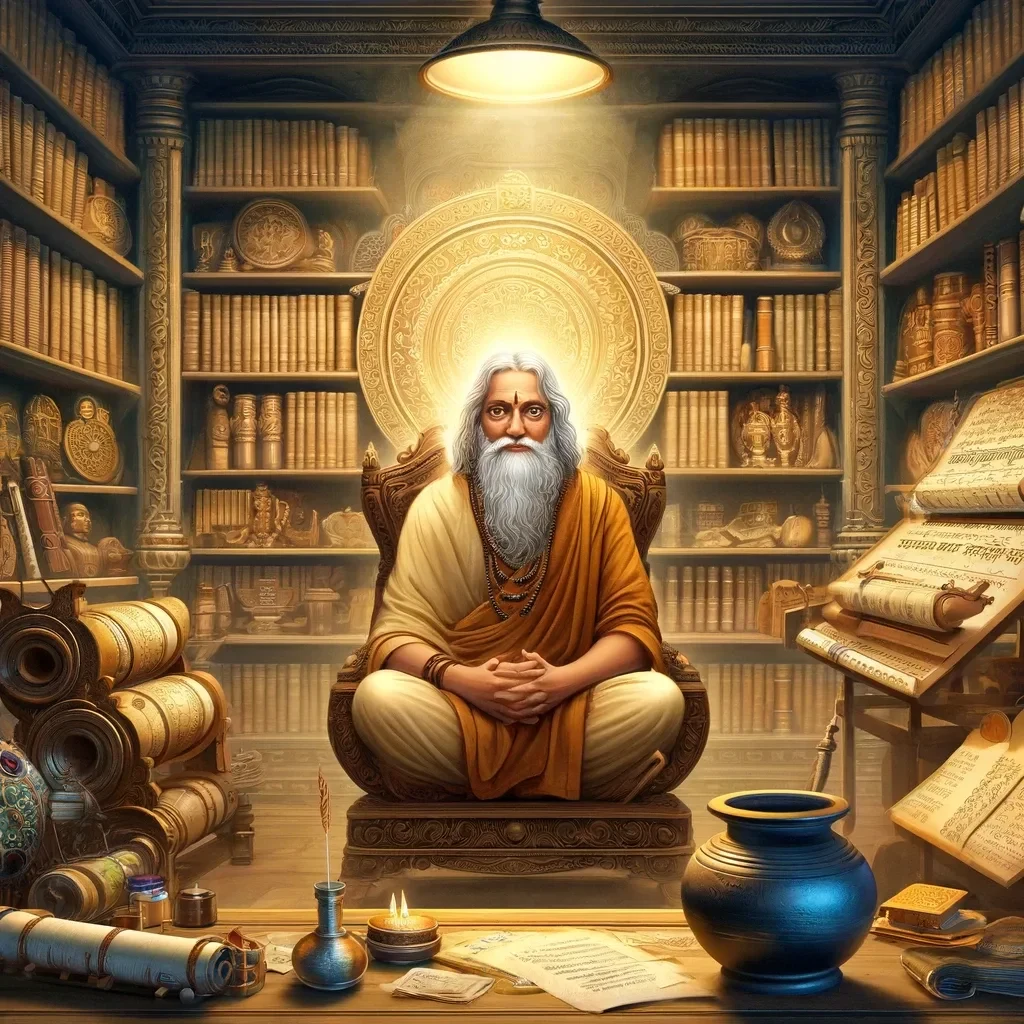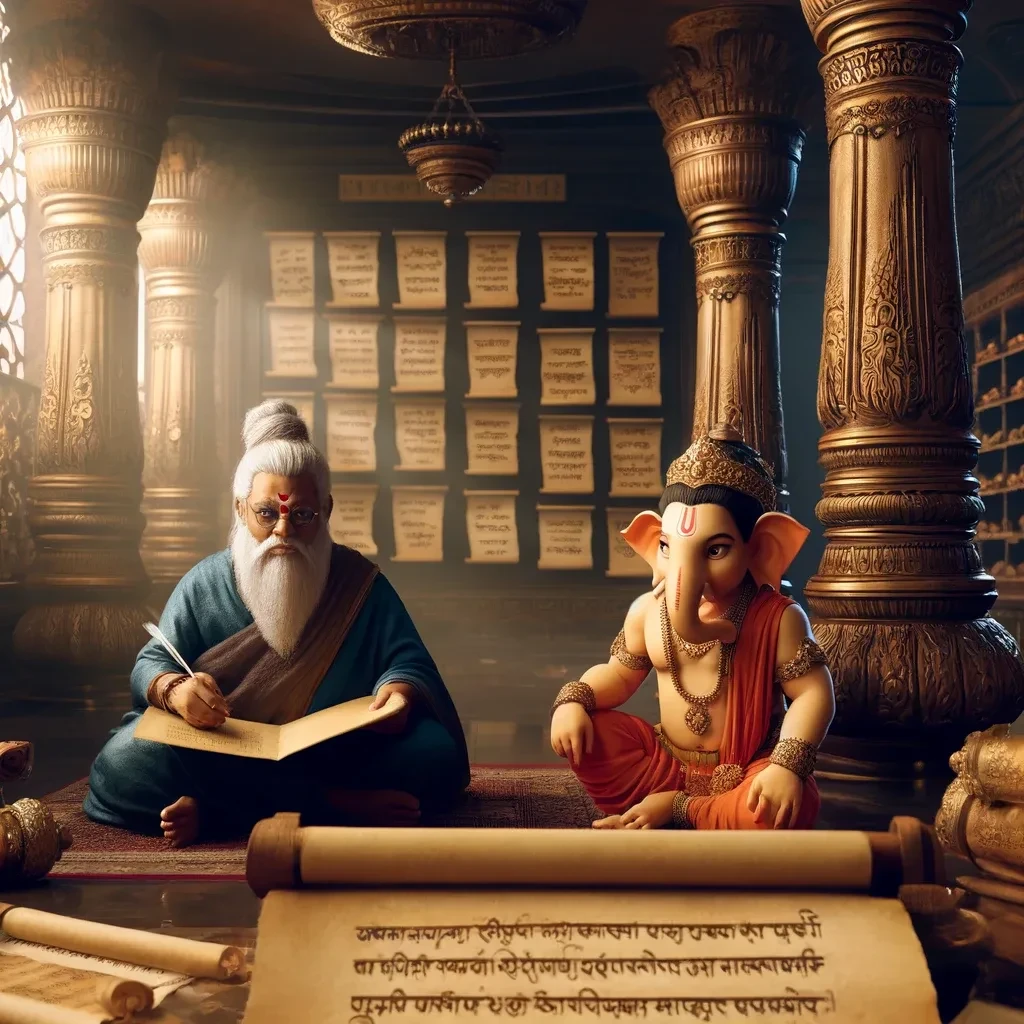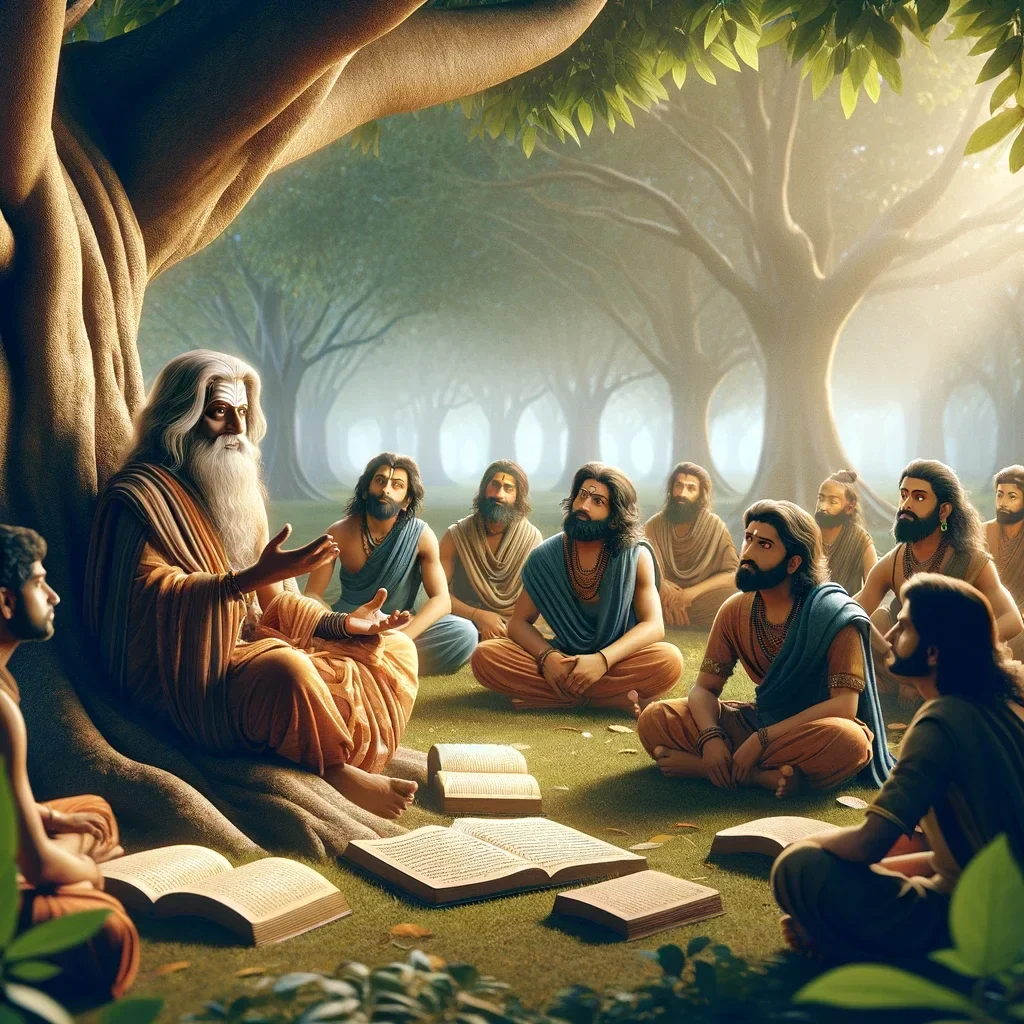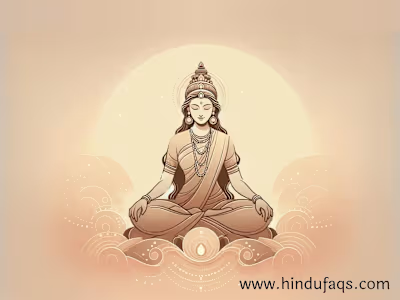The Sage of Dharma: Ved Vyasa’s Contributions to Hindu Lore
Ved Vyasa: The Sage of Monumental Epics and Philosophical Insights
Discover the life and legacy of Ved Vyasa, the legendary sage behind the Mahabharata and contributions to the Vedas. Explore his birth story, education, teachings, and immortal legacy.
Ved Vyasa, also known as Krishna Dvaipayana Vyasa, stands as a central and revered figure in Indian history and spirituality. He is credited not only with composing the Mahabharata, one of the longest epic poems in the world, but also for his significant contributions to the compilation and structuring of the Vedas, the ancient sacred texts of Hinduism. His life and works extend beyond mere literary achievements, embedding deep philosophical and spiritual teachings that continue to influence millions across the globe.
Who was Ved Vyasa?
Ved Vyasa is a legendary sage known for his unparalleled contributions to Indian literature, philosophy, and spirituality. He is traditionally regarded as the compiler of the Vedas and the author of the Mahabharata, as well as the Puranas, adding a rich legacy to the spiritual fabric of India.

What is the birth story of Ved Vyasa?
Ved Vyasa was born on an island in the Yamuna River. His birth story is quite remarkable and symbolic, filled with divine intervention and mystic elements. Vyasa’s mother, Satyavati, was a fisherwoman, and his father, Parashara, was a wandering sage. The story goes that Parashara was crossing a river when he was captivated by Satyavati's beauty. Their union on the mist-covered island resulted in the birth of Vyasa. Parashara endowed his son with wisdom and granted him a boon that he would be a part of Satyavati’s life whenever needed.
How was Ved Vyasa's early life and education?
Vyasa’s early life was marked by his father’s guidance and the solitude of the forest where he was raised. He was taught by sages living in the forest and quickly absorbed vast amounts of spiritual and philosophical knowledge. Vyasa was recognized early on for his intellect and mastery over the Vedas and other ancient scriptures.
Vyasa’s education began under the tutelage of sages living in the hermitages near the forest. From a young age, Vyasa exhibited an exceptional aptitude for learning, absorbing complex spiritual texts and the Vedas with remarkable ease. His profound understanding of the scriptures was evident early on, and he was known for his ability to recite and interpret ancient texts, which was uncommon among his contemporaries. The holistic environment, combined with rigorous spiritual discipline, moulded Vyasa into a sage with deep insights and knowledge, paving the way for his future contributions to Indian literature and philosophy.

What are Ved Vyasa’s contributions to the Mahabharata?
The composition of the Mahabharata is perhaps one of the most significant endeavours undertaken by Ved Vyasa. This epic, often considered the longest poem ever written, is said to have been dictated by Vyasa to Lord Ganesha, who acted as his scribe. According to legend, Vyasa agreed to Ganesha's condition that the dictation must be continuous without pause, which Vyasa countered by composing complex verses that would occasionally require Ganesha to pause for interpretation, allowing Vyasa time to think ahead.
The Mahabharata, sprawling across about 100,000 shlokas (couplets), is not merely a historical epic but a vast encyclopaedic collection of Hindu myths, legends, and teachings. Its narrative depth covers philosophical debates, family feuds, moral dilemmas, and the horrors of war, culminating in the profound spiritual discourse known as the Bhagavad Gita. Through the characters of Arjuna, Krishna, Draupadi, and others, Vyasa explores themes of duty, righteousness, justice, and sacrifice.
Vyasa’s role as an observer and sometimes participant in the events adds layers of depth to the narrative, allowing him to provide commentary and insights into the actions and motivations of the characters. His writing not only preserves the historical and cultural ethos of ancient India but also addresses universal questions of morality and ethics that resonate with audiences across ages and cultures.
How did Ved Vyasa contribute to the Vedas?
Ved Vyasa’s contributions to the Vedas are monumental in the history of Hindu scriptures. Known as a compiler rather than an author of the Vedas, Vyasa organized the massive body of Vedic texts into four distinct Vedas: the Rig Veda, the Yajur Veda, the Sama Veda, and the Atharva Veda. This division was intended to make the Vedas more accessible and easier to study, ensuring their preservation and continued relevance.
Each Veda serves a specific religious function, containing hymns, rituals, ceremonies, and spells. By systematizing these texts, Vyasa ensured that the spiritual and practical knowledge within them could be effectively passed down through generations. This organization not only preserved the knowledge but also democratized its access, allowing scholars and practitioners from different walks of life to contribute to and expand upon this sacred knowledge.
Furthermore, Vyasa authored the Brahmanas and the Aranyakas, which are commentaries and meditations respectively on the rituals described in the Vedas. His work didn’t stop there; he is also credited with composing the eighteen Puranas, texts that are simpler and more accessible, dealing with myths, legends, and traditional folklore, designed to communicate the philosophical and moral teachings of the Vedas to the common people.
Vyasa’s intellectual and spiritual contributions have shaped not just Hindu spirituality but also the cultural and philosophical landscape of India. His works remain a critical source of knowledge, wisdom, and guidance for millions around the world, underlining his immortal legacy as one of India’s greatest sages.

What are some philosophical teachings and insights of Ved Vyasa?
Ved Vyasa's philosophy and teachings, deeply embedded within his literary works, particularly the Mahabharata and the Bhagavad Gita, offer profound insights into the nature of life, duty, morality, and spirituality. His teachings are not just theological or mythical narratives; they address the core of human existence and ethical conduct.
The Concept of Dharma
One of the central themes in Vyasa's philosophy is the concept of dharma—often translated as duty, righteousness, or moral law. Through the narrative of the Mahabharata, Vyasa explores the complexities of dharma, illustrating that it is not a fixed, one-size-fits-all solution but varies according to one's role in society, personal circumstances, and the larger cosmic order. This nuanced understanding of dharma is best exemplified in the counsel given to Arjuna by Krishna in the Bhagavad Gita, where Arjuna is conflicted about fighting his own relatives in the Kurukshetra war.
The Nature of Life and Reality
Vyasa delves into the nature of life and reality, particularly through the teachings of the Upanishads, which are often associated with his compilations. He discusses the impermanence of the material world and the ultimate reality of Brahman—a singular, unchanging truth beyond the physical and mental experiences that characterize human life. This philosophy encourages a detachment from the transient and an engagement with the eternal, achieved through self-realization and meditation.
Karma and Reincarnation
The laws of karma and reincarnation are fundamental to Vyasa’s teachings. He posits that every action has consequences that shape one’s future, both in this life and in the lives to come. This concept is used to underscore the importance of righteous action or karma performed according to one's dharma, without attachment to the results. This teaching encourages ethical behavior and selflessness, which are seen as paths to liberation.
Yoga and Meditation
Vyasa is also credited with composing the Yoga Sutras, a text that systematically presents the practice of yoga. Through this work, he explores the mind’s potential and the means to harness it through yoga and meditation. The Yoga Sutras of Vyasa outline an eightfold path to enlightenment, which includes ethical precepts, physical postures, breath control, sensory withdrawal, concentration, meditation, and ultimate union with the divine.
The Role of Devotion
In addition to action (karma) and knowledge (jnana), Vyasa places a significant emphasis on devotion (bhakti). In his interpretations and narrations, especially in the Bhagavad Gita, he advocates for a personal devotion to God as a powerful path to spiritual liberation. This bhakti yoga is portrayed as accessible to all, regardless of social status or personal capabilities, making it a profoundly democratizing force in spiritual practice.
Moral and Ethical Dilemmas
Finally, through the intricate narratives and myriad characters of the Mahabharata, Vyasa engages deeply with moral and ethical dilemmas. He does not shy away from depicting the flaws and failings of even the most revered characters, thereby illustrating the inherent complexities of human nature and the challenges of ethical living.
Legacy of Vyasa’s Philosophical Teachings
Ved Vyasa’s philosophical teachings have left an indelible mark on Hindu thought and beyond. His works encourage a balanced life, where knowledge, action, and devotion are harmonized for spiritual growth. Vyasa’s profound insights into the human condition, ethics, and the ultimate goals of life continue to inspire philosophical, theological, and ethical discourse worldwide, making his teachings timeless and universally relevant.
Is there any truth to Ved Vyasa’s immortality?
The concept of Ved Vyasa's immortality is deeply entrenched in the spiritual and cultural narratives of Hindu tradition. Unlike the Western notion of immortality, which often focuses on an unending physical life, Vyasa's immortality is metaphorical, spiritual, and literary, permeating through his enduring contributions to religious texts, his perpetual presence in the collective consciousness of Hindu culture, and the ongoing relevance of his teachings.
Literary Immortality
Ved Vyasa's literary works, particularly the Mahabharata, the Puranas, and his systematization of the Vedas, have granted him a form of immortality through the ages. These texts are not merely historical artifacts but living documents that continue to be read, recited, and interpreted by millions of people around the world. The Mahabharata, for instance, is more than just an epic tale; it's a cultural cornerstone that offers moral guidance and philosophical insight. Vyasa’s narratives have been retold in countless forms and adaptations, from classical performances to modern films and books, ensuring his continued presence in the cultural zeitgeist.
Spiritual Immortality
In Hinduism, Vyasa is often considered a Chiranjivi, one of the immortal beings destined to live until the end of the current age (Kali Yuga). This belief underscores his spiritual immortality, suggesting that Vyasa still exists in a metaphysical form, guiding the spiritual journey of seekers and scholars. It is said that Vyasa appears to the devout and the scholars in moments of profound spiritual significance, providing guidance and wisdom. This aspect of immortality is emblematic of Vyasa’s role as a spiritual guide, whose insights continue to resonate and provide direction.
Philosophical and Ethical Immortality
Vyasa's teachings, encapsulated in the Bhagavad Gita and his other scriptural commentaries, deal with universal questions of morality, duty, and the meaning of life. These teachings transcend time and geography, addressing the core of human existence and ethical conduct. As societies continue to grapple with questions of right action, duty, justice, and ethical living, Vyasa’s philosophical contributions remain relevant, offering answers and insights that are timeless in their wisdom.
Cultural and Educational Immortality
Vyasa's impact extends beyond spirituality into the realms of education and culture. The division of the Vedas into four parts made the Vedic knowledge more accessible and organized, facilitating its teaching and study across generations. This educational framework not only preserved this ancient knowledge but also ensured its relevance through various epochs of Indian history. Schools, educational curriculums, and spiritual discourse continue to draw on Vyasa’s works, illustrating his ongoing influence in the fields of education and culture.
Conclusion: The Multifaceted Immortality of Vyasa
Ved Vyasa’s immortality can be seen as a multifaceted phenomenon, encapsulating literary, spiritual, philosophical, and cultural dimensions. His ability to speak to the eternal human concerns—through his well-crafted epics, detailed philosophical discourses, and complex characters—ensures that his presence is felt across ages. Vyasa remains an immortal figure not just in the literal sense but through the enduring legacy of his teachings and their impact on humanity. This form of immortality, profound and pervasive, continues to guide, inspire, and enlighten.
Like this project
Posted May 13, 2024
The article explores the legacy of Ved Vyasa, a sage, author of the Mahabharata, organizer of the Vedas, and immortal figure in Hindu philosophy and culture.
Likes
0
Views
329






